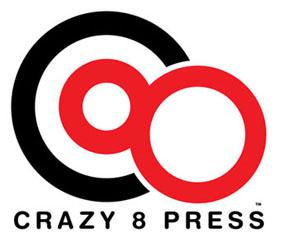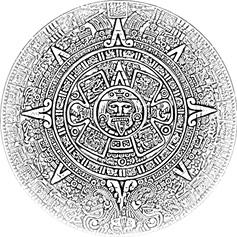Aztlan: The Last Sun
Read Aztlan: The Last Sun Online
Authors: Michael Jan Friedman
Tags: #Literature & Fiction, #Mystery; Thriller & Suspense, #Police Procedurals, #Science Fiction & Fantasy, #Science Fiction, #Alternate History, #Mystery, #Alternative History



MICHAEL JAN FRIEDMAN

Copyright © 2012 by Michael Jan Friedman
Cover and design by Aaron Rosenberg
All rights reserved. No part of this book may be used or reproduced in any manner whatsoever without written permission except in the case of brief quotations embodied in critical articles and reviews. For information contact Crazy 8 Press at the official Crazy 8 website:
www.crazy8press.com
First edition
Aztec Names: A Pronunciation Key
a
as in father
e
as in net
i
as in police
o
as in note
u
as in flute
au
as in flautist
ai
like the first e in eye
c
hard before a, o, or u and soft before e or i
ch
as in choose
cu
like the qu in queen
h
as in hello
hu
like the w in way
l
as in lose
m
as in make
n
as in nose
p
as in pie
qu
like the k in kite
t
as in tell
tl
like the ll in llama
tz
like the ts in cats
x
like the sh in shell
y
as in you
z
like the s in sun

I
t was the End of the World.
It was the Last Sun, the Final Days. It was, as the commentators on the Mirror liked to put it, The Millennium.
The Calendar of a Thousand Cycles was grinding to a halt. Time itself was faltering like a wounded jaguar, bleeding out its life’s blood into the rich, dark earth of the jungle, seeking a cool, shaded place to lay its head down and expire.
And all my aunt could talk about, in the guttering light of her rainbow-colored Renewal candles, was her heartburn.
“If only I could get some nice, dark chocolate,” she said, placing tiny ceramic statuettes of the gods around her old, tarnished silver candle-holder, each little god a riot of turquoise and red ocher and amber hues. She slid me a sideways glance. “Chocolate would take care of my heartburn, Maxtla.”
My aunt, a slender, pinch-cheeked woman with gray streaks in her long, braided hair, never asked for anything directly. It was always “If only” and “How I would love,” never “Can I have?”
Standing over by the curtains, I smiled to myself. “Aunt Xoco,” I said, as if I were the elder and she the younger, “I’m pretty sure that chocolate
causes
heartburn, if it does anything at all.”
“Maybe so, when it comes to
other
people,” she allowed, standing back to consider the way she had distributed the statuettes. “For me, it works.”
“Even if there were some medical support for what you’re saying, you know that—”
“Chocolate is off-limits to us,” she said, cutting me off.
“Well,” I said, “yes.”
She dismissed my objection with a flip of her bony wrist. It jangled her clutch of antique silver bracelets, which had belonged to her mother and her mother’s mother. “And yet people get their hands on it, don’t they? Somehow, Maxtla, they get their hands on it.”
What she said was true. There was a thriving black market for the stuff, now more than ever before. But then, a pocketful of chocolate was no longer the death sentence it had been in ancient days.
“And you want me,” I asked, “an officer of the Empire, to acquire this chocolate for you? How would it look for someone in my position to break the Emperor’s Law?”
She snorted. “You’re too obedient, Maxtla.”
“Too obedient? How is that possible?” I gibed.
Instead of answering, Aunt Xoco closed her eyes and touched her heart in obeisance to Huitzilopochtli, Tonatiuh, and Chantico, just as she had at holiday dinner the cycle before and the cycle before that, all the way back to the time of my earliest memories. The candle light picked out the hollows in her face, making her look like some other woman entirely.
Finally, she opened her eyes, signaling that she had completed her devotion. “In my day,” she said, “officers of the Empire overlooked such technicalities as the Chocolate Law. They did whatever they could for those they loved.”
“Things were looser then,” I pointed out.
At least in some ways
.
She harrumphed. “
Looser
.” Then she added, “Close the curtains,” and vanished into the kitchen, which was situated right alongside the eating room.
I smiled again. Then I turned to my aunt’s big, north-facing window. A vast panoply of red-gold lights rolled away from me in every direction across the city’s carefully ordered, geometrically shaped districts, sparking fiery reflections in a thousand still pools and a thousand narrow canals, interrupted here and there only by the splendid, silver web of Aztlan’s rail lines.
The River of Stars, which bisected the city, wasn’t visible from this angle. But that too, would be ablaze with reflected light, a gargantuan, scaled serpent slithering silently under and alongside the walkways of man.
Normally, those walkways would be full of people, millions of them, most of them on their way home from work. The food markets would be full, the
octli
vendors busy, the taverns packed with young men and women. But not that night.
That night, not just in Aztlan but everywhere across the vast Empire of Mexica, from the Bay of Ice in the far north to the Land of Fire in the distant south, every business was closed. The only doors that were open were the doors of fathers and mothers, grandfathers and grandmothers, aunts and uncles. It was a night for family, for solemnity, for gratitude.
And adult men all across the Empire would be doing exactly what I was doing—pulling closed white linen curtains against the uncertainties of the world, asking the gods to cup our kin in their divine hands the way we might cup a match against a savage wind.
That night—on the first of the Five Unlucky Days that preceded the Fire Renewal—there were no nobles, no commoners, no workers, no chiefs. No distinctions whatsoever. Or so it was said.
There were only the People. And the People, for the time being, were at peace.
By the Fifth Day, it would be an entirely different story. Starting early that morning, Aztlan would lose its mind. There would be fires in inconvenient places, and people doing odd things in the streets, and crimes of passion.
All
kinds
of passion. And all kinds of crimes, including the
worst
of them.
But such depravities were to be expected when a bundle of cycles came to an end, when a Fire Renewal burned away the veneer of civilization and exposed the painted, pierced, howling wild men in us. Because no matter how far the Empire advanced, no matter how sophisticated we became, we never knew in what light the gods would see us when our time came, or—having seen us—what they would decide to do with us.
And it was not knowing that drove us crazy.
We would be driven to this madness by
any
Fire Renewal. But this one was different. It was, as I’ve mentioned, the End of the World.
When Aunt Xoco came out of the kitchen, it was with a platter in each hand—one piled with spiced corn cakes, the other full of bulging vegetable bundles.
“We’ve always had
laws
,” she said, resuming our conversation as if it had never been interrupted. She set the plates down around the statuettes. “You know that, Maxtla. And there has always been a risk involved in breaking them.”
I was about to respond when my aunt left me again. She returned with a bowl of deep-green limes from Texcoco and a decorated gourd full of newly distilled
octli
. I knew about the limes and the
octli
because I had bought them on my way there.
This time I actually got a couple of words out before she held up a hand, silencing me. “The food, Maxtla. It’s hot
now
.”
A third time, she retreated into the kitchen. When she emerged, she was carrying a mound of grilled gopher and a poached water snake. The aroma should have been illegal, like chocolate.
Placing the plates on the pitted wooden surface of the table, Aunt Xoco surveyed the landscape of delicacies for a moment. It was more food than we could possibly eat. But that was the way my aunt liked to cook—as if she were feeding not only us but every last one of our ancestors.
“Sit,” she said at last.
I pulled out a chair and sat.
As she took the seat opposite mine, she looked like she had every intention of continuing our conversation. I, on the other hand, wanted to change its direction.
“Now that I think about it,” I said, as I picked up my knife and fork, “chocolate is supposed to be good for diarrhea. Is
that
the problem, Aunt Xoco?”
“
Please
,” she said, holding up a blue-veined hand and rolling her lidded eyes, “must we talk about such things while we’re eating holiday food?”
The eye rolling reminded me of my father. He had been a lot broader than my aunt, a strong man for his modest height, but no one would ever have missed the fact that they were brother and sister. My father had the same mannerisms as Aunt Xoco, the same facial expressions, the same dark eyes and high cheekbones.
I, on the other hand, took after my mother’s side of the family. I was taller than most men, longer of leg, and my eyes were brown rather than black. That had always bothered my father—the fact that I didn’t look like him. But he left his imprint on me all the same.
“No,” I agreed, “we can avoid such topics.”
I sliced off a dark, juicy piece of gopher meat. Then I laid it on my orange, blue, and white holiday plate, obscuring the likeness of medicine-bringer Patecatl, Aunt Xoco’s birth-god.
The gopher meat was rubbed with an assortment of spices, the names of which my aunt would not have divulged on pain of death. It melted in the mouth the way the sun melted in the Western Ocean.